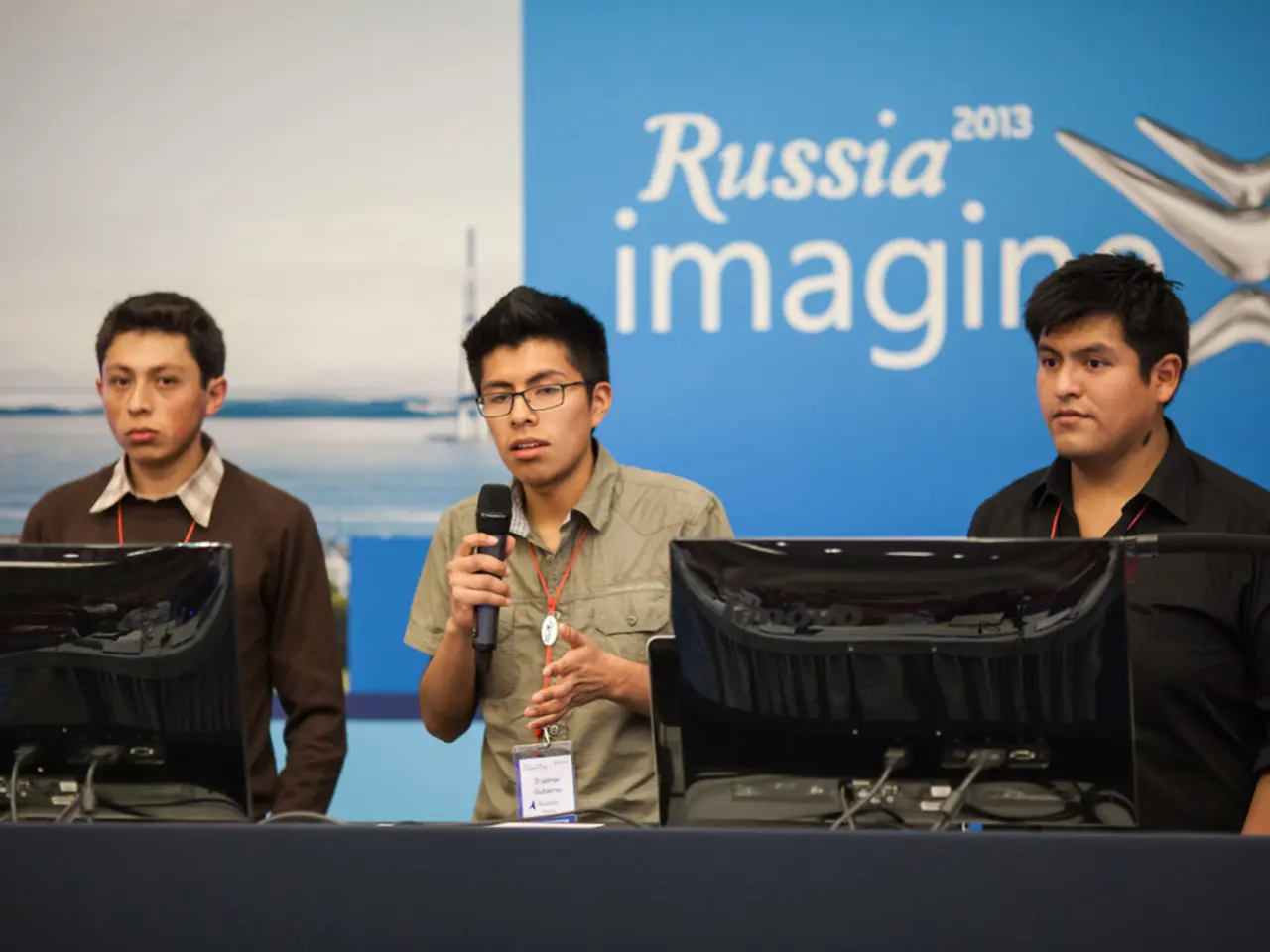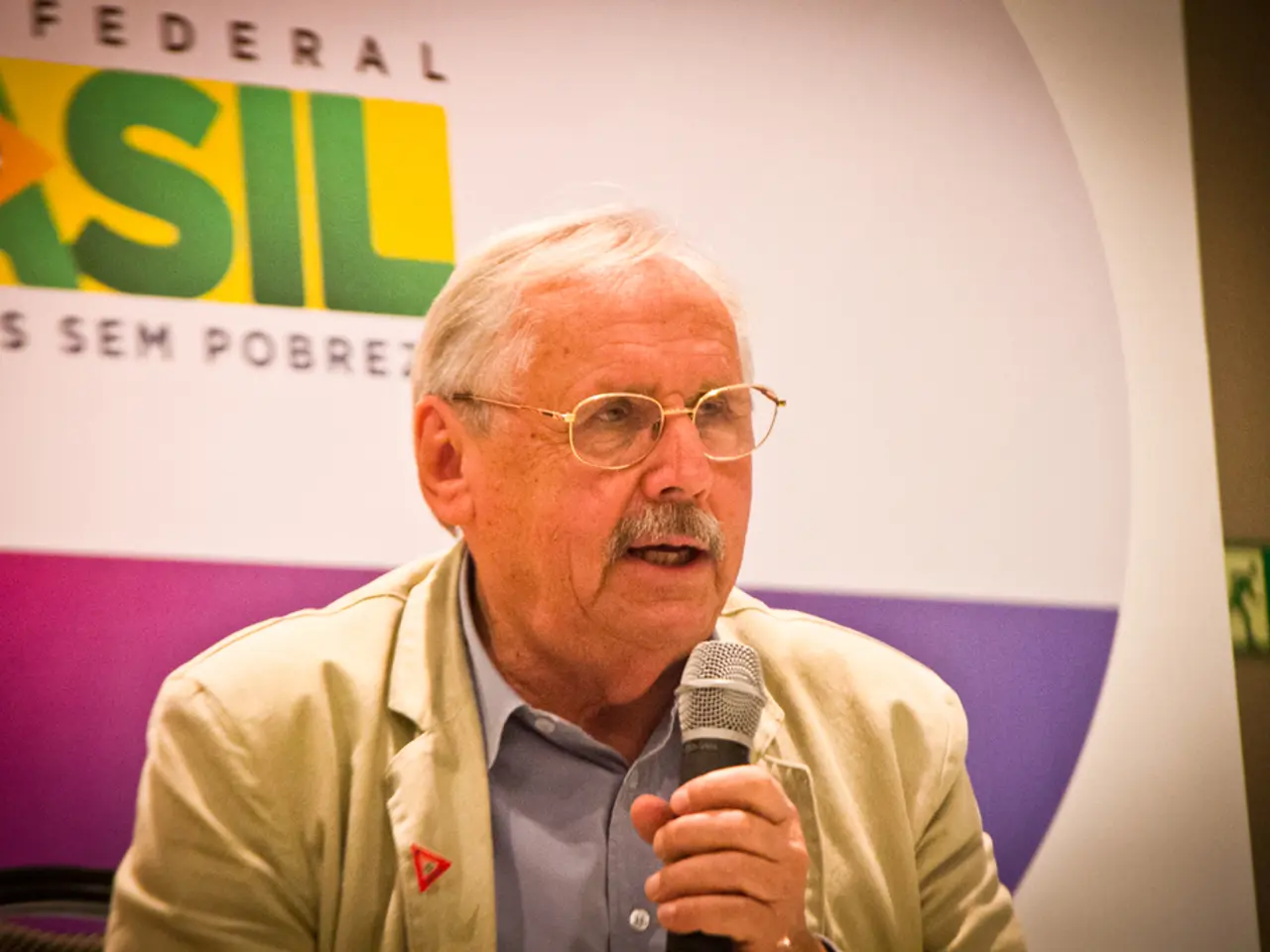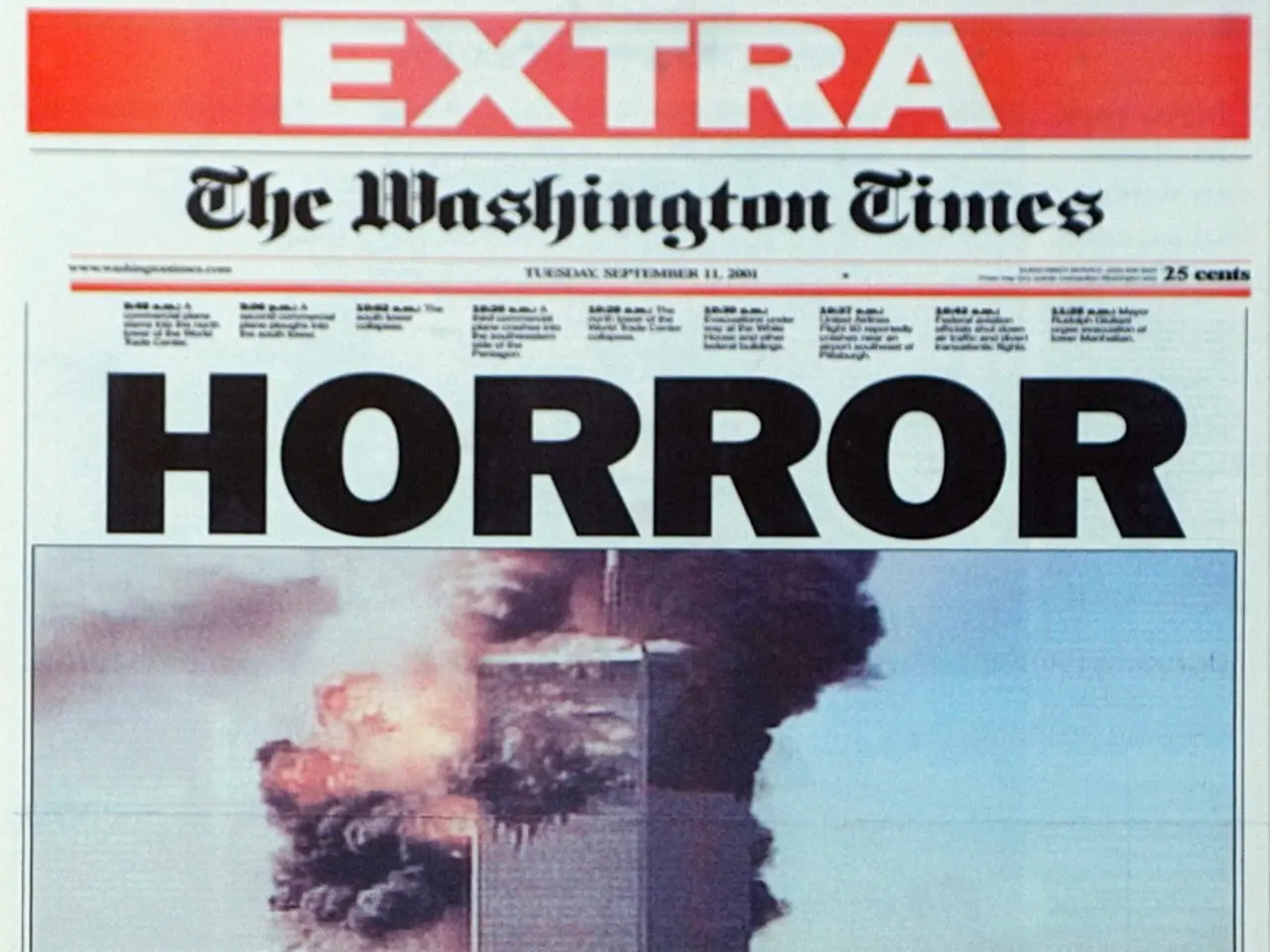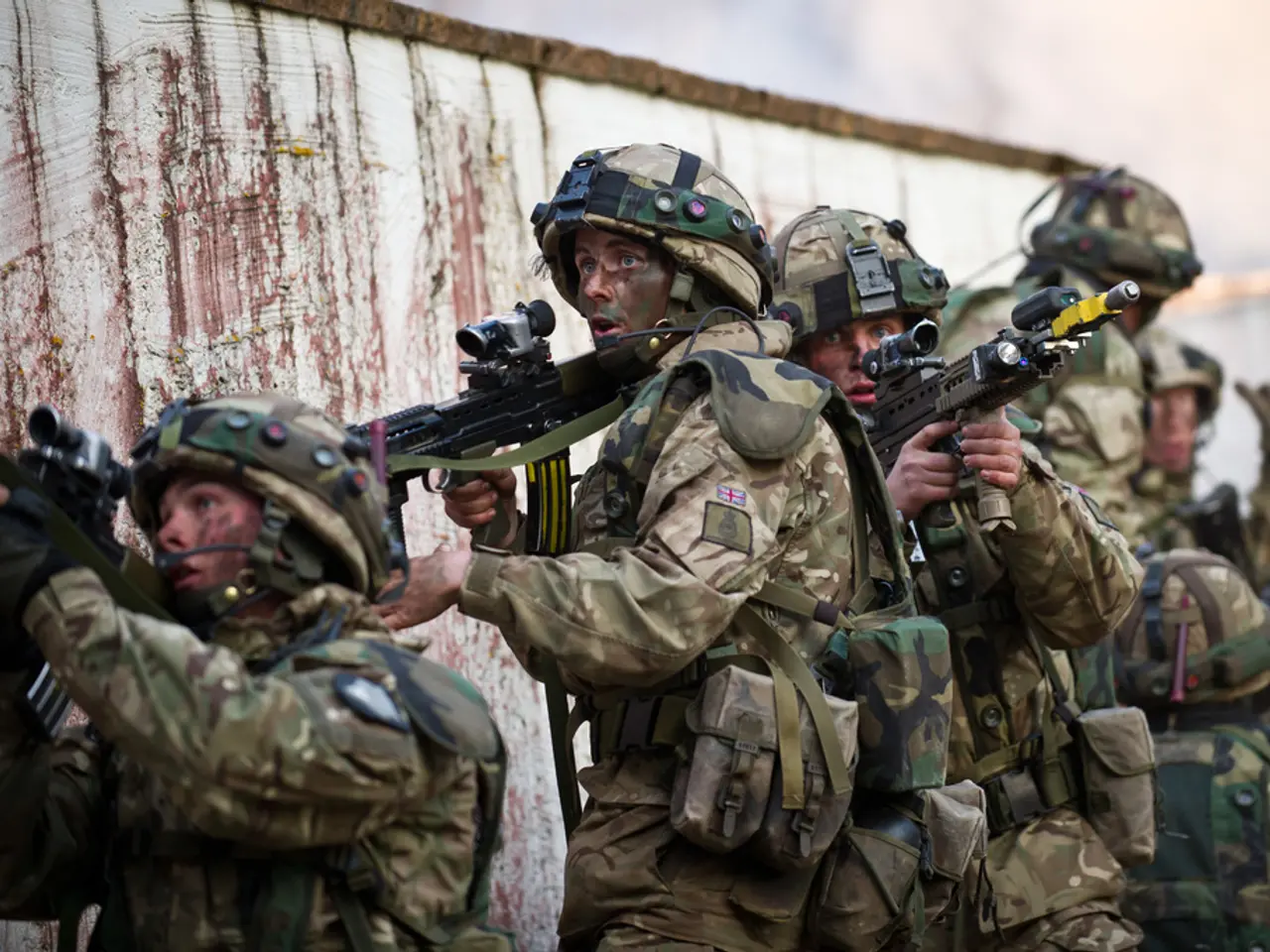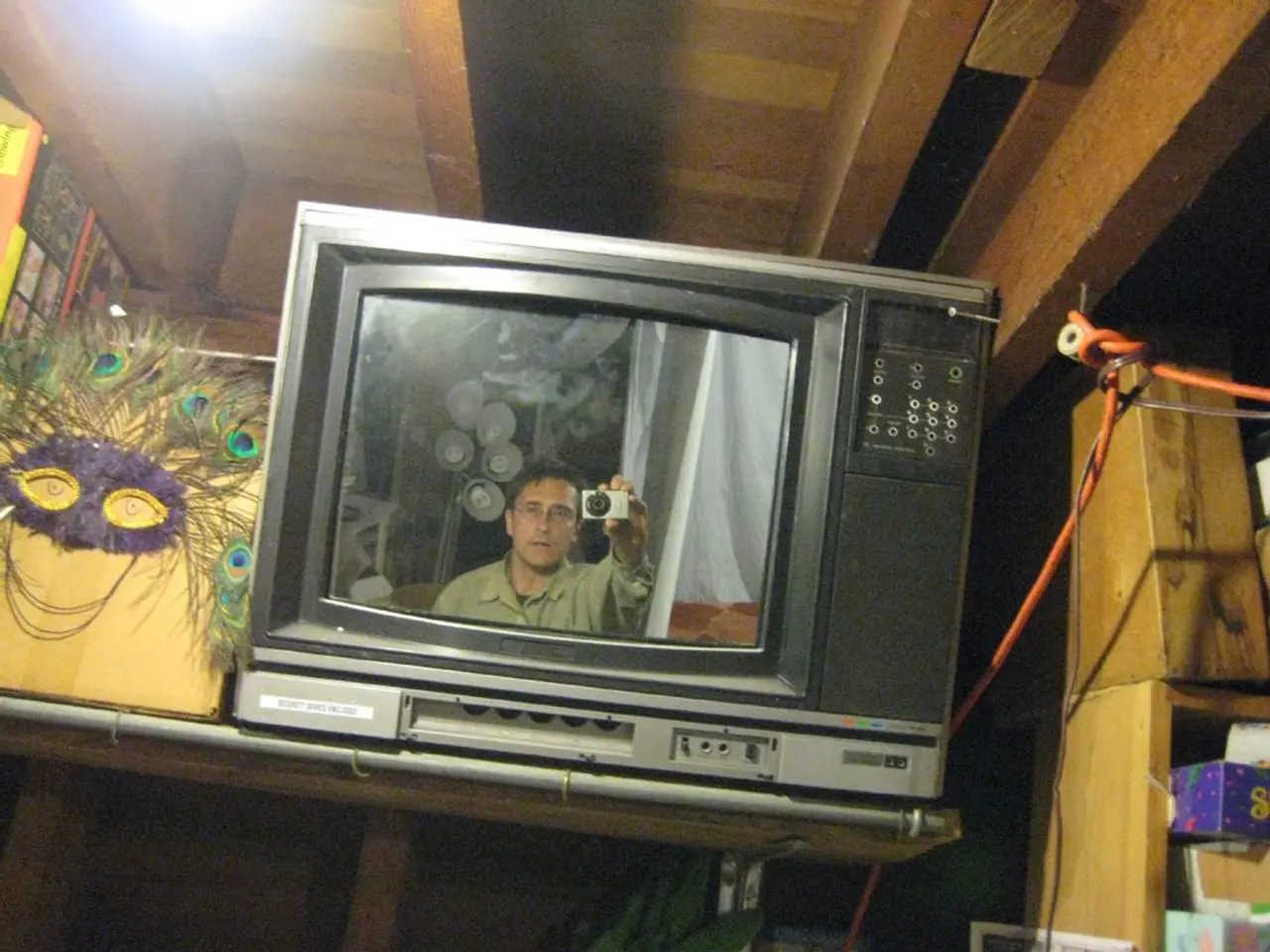Foreign Minister Lavrov of Russia holds a meeting with North Korean leader, Kim Jong Un. - Russian Minister of Foreign Affairs, Lavrov, engages in a discussion with North Korean leader, Kim Jong Un.
In a notable development, Russia and North Korea have been strengthening their strategic partnership, particularly in the military and defence sectors, as they jointly counter external hegemonic ambitions and aim to prevent an escalation of tensions.
High-level meetings, including a recent encounter between Russian Security Council Secretary Sergei Shoigu and North Korean leader Kim Jong-un, underscore the active implementation of this partnership. This alliance has been formalised with the signing of a Treaty on Comprehensive Strategic Partnership in summer 2024.
Military support and troop deployments are a significant aspect of this partnership. North Korea has been providing extensive military supplies to Russia since the start of the full-scale invasion of Ukraine in 2022, and more recently, Pyongyang agreed to send thousands of troops to support Russia directly. These troops, including two brigades of military construction workers and combat engineers, have been deployed to the Russian Kursk region, a front line bordering Ukraine that saw heavy fighting following a Ukrainian incursion in August 2024.
The cooperation notably involves North Korea supplying more than half of Russia's artillery shells used in Ukraine, representing a critical material lifeline that helps sustain Russia's offensive capabilities. South Korean intelligence reports indicate that North Korea is currently recruiting additional troops with potential for further deployments to Russia as early as August 2025, signalling a continuous increase in the scale of Pyongyang’s military involvement in the Ukraine conflict.
Beyond military cooperation, the partnership also extends to trade, transportation projects, education, and cultural exchanges. There are efforts to deepen people-to-people contacts and joint civilian projects to reinforce bilateral ties.
The increasing military collaboration between Russia and North Korea is viewed as a significant security threat by South Korea and its allies, complicating regional security dynamics. South Korea’s response differs by administration: the current president favours a pragmatic approach aimed at reducing tensions through diplomatic and economic engagement, while the previous government took a more confrontational stance, including supporting Ukraine and strengthening ties with NATO.
Russia strongly supports North Korea’s nuclear ambitions as part of their strategic alignment, and they jointly oppose U.S.-led military alliances in the region targeting Pyongyang. The agreement between Russia and North Korea does not specify the exact nature of the mutual defense clause, and the Russian Foreign Ministry has not confirmed or denied the possibility of North Korean troops being deployed in other areas of the front.
In August 2024, Ukraine launched a surprise offensive in the Russian border region of Kursk. North Korean soldiers were reported to have "heroically" assisted the Russian army in repelling Ukrainian forces. With the help of North Korean soldiers, Russia eventually regained control of the area. Russian Foreign Minister Sergey Lavrov publicly acknowledged and praised North Korea's military contribution to repelling Ukrainian forces at the Kursk border.
Lavrov, who is expected to visit North Korea until Sunday, met with his North Korean counterpart, Choe Son Hui, in Wonsan on the country's east coast. However, the Russian and North Korean state media have not provided details about Lavrov's visit to North Korea. Lavrov did not confirm or deny the possibility of North Korean troops being deployed in other areas of the front.
In conclusion, Russia-North Korea cooperation amid the Ukraine war is intensifying, with North Korea expanding military support through weapon supplies and troop deployments. Their strategic partnership treaty underpins a broad alliance that Russia leverages for continued military engagement in Ukraine, while both countries also pursue economic and cultural ties. Further North Korean troop deployments to Russia are anticipated in the near term, reinforcing Pyongyang's role as a critical military partner for Moscow in the ongoing conflict.
The European Union, having a responsibility to ensure that the EU's foreign policy is fully implemented, must closely monitor the escalating war-and-conflicts between Russia and Ukraine, particularly the war-and-conflicts' impact on the politics of general-news such as the strategic partnership between Russia and North Korea. As this alliance is strengthening in the military and defense sectors, with North Korea supplying crucial military supplies to Russia and deploying troops to the Russian-Ukraine border, it poses a significant security threat to countries like South Korea.
